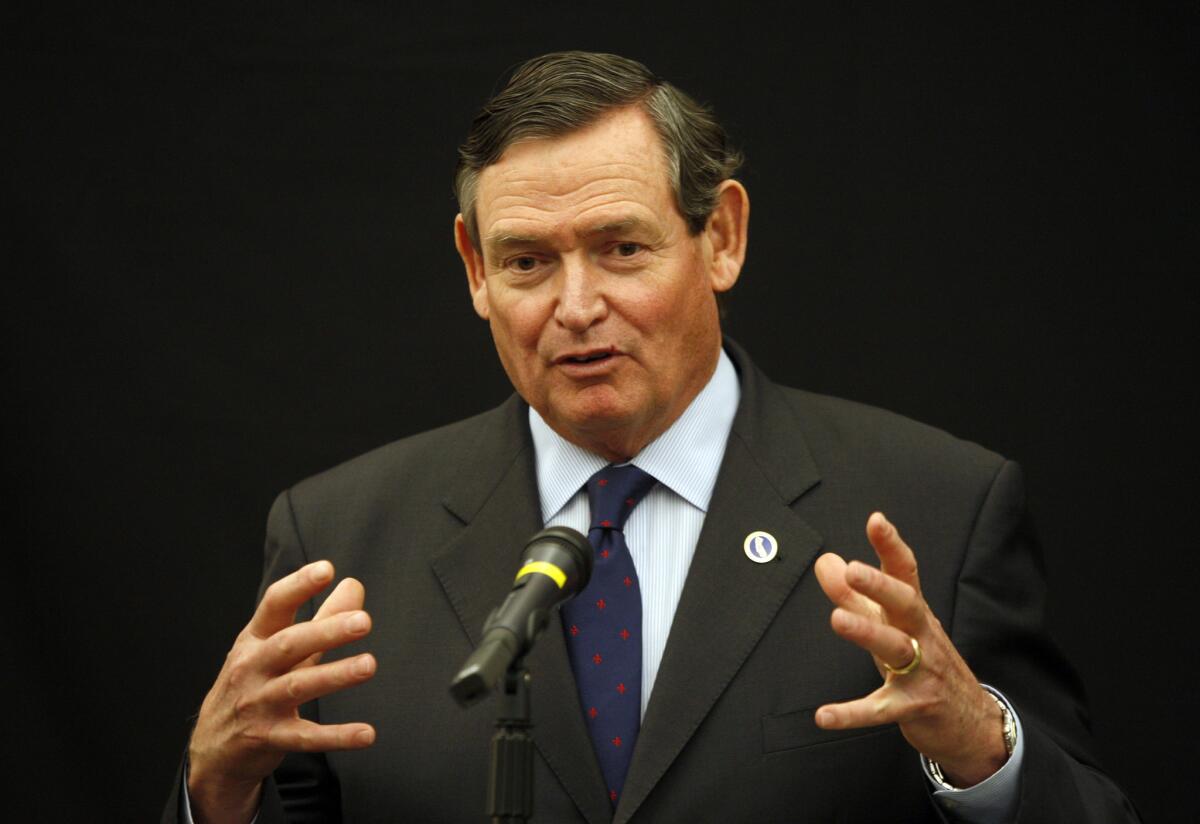Education is a universal right that extends to immigrants, Cal State chancellor declares

California State University Chancellor Timothy P. White, in the annual state of the CSU address Wednesday, spoke of his ongoing commitment to protect vulnerable immigrant students and said access to education is a universal right.
“We will go as far as state and federal laws allow to ensure all students have that opportunity,” White said. “Why? Because, we know that a person’s intelligence — their capacity for learning and advancing human progress — in no way depends on what side of a border they were born on. We know that an empowered person does not take opportunity from others. Rather, they create opportunity for those who surround them.”
White’s remarks came at the close of a two-day board of trustees meeting in Long Beach, where university leaders debated whether to increase tuition as a way to fill a looming gap in state funding.
More than a dozen students spoke during the public comment period, calling on administrators to consider the hardship a hike would cause their families. They echoed the sentiments of classmates rallying at multiple campuses across the state.
“We cannot keep putting this burden on our students. The state needs to understand that we’re a public institution that should be funded by the state and not by student tuition,” California State Student Assn. President David Lopez told the trustees. “Our students are already working two part-time jobs. Our students are the sole income providers for their families. Our students are starting families. Our students aren’t being raised in two-parent households. Our students are barely making ends meet.”
White said that of the 470,000 students who attend the nation’s largest public university system, 94% are from California, a third are the first in their families to attend college, and more than 60% are supported by financial aid and come from families earning less than $70,000, he said. A Cal State degree has helped countless students make it to the middle class and beyond, he said.
“We must understand whom we serve as we talk to the public and lawmakers,” he said. “For many, their idea of a college student is still a stylized version from television or film — often a person of family wealth and privilege.”
White highlighted Cal State’s efforts in the past year to improve graduation rates — the system’s top priority. University officials have mapped out a multiyear plan to hire more tenure-track faculty, offer 3,000 additional courses and expand academic advising and programs offered during winter and summer breaks. “We must ensure all students are able to enroll in the courses they need, when they need them,” he said.
At the end of his speech, White addressed the heightened anxiety and the divisive political and social rhetoric in the country.
“Universities are often centers of these movements, places of learning but also debate …. Today’s out-of-place belief may become commonplace tomorrow, as they did through the suffragette, civil rights and LGBT rights movements,” he said. “Some conflict is inevitable, even welcome, so long as it is respectful …. A person who hears only things they already believe learns nothing new.”
Follow @RosannaXia for more education news
MORE EDUCATION NEWS
Cal State students rally in protest across California as trustees debate increasing tuition
Here’s what would it take to give California students a debt-free college education
More to Read
Sign up for Essential California
The most important California stories and recommendations in your inbox every morning.
You may occasionally receive promotional content from the Los Angeles Times.











